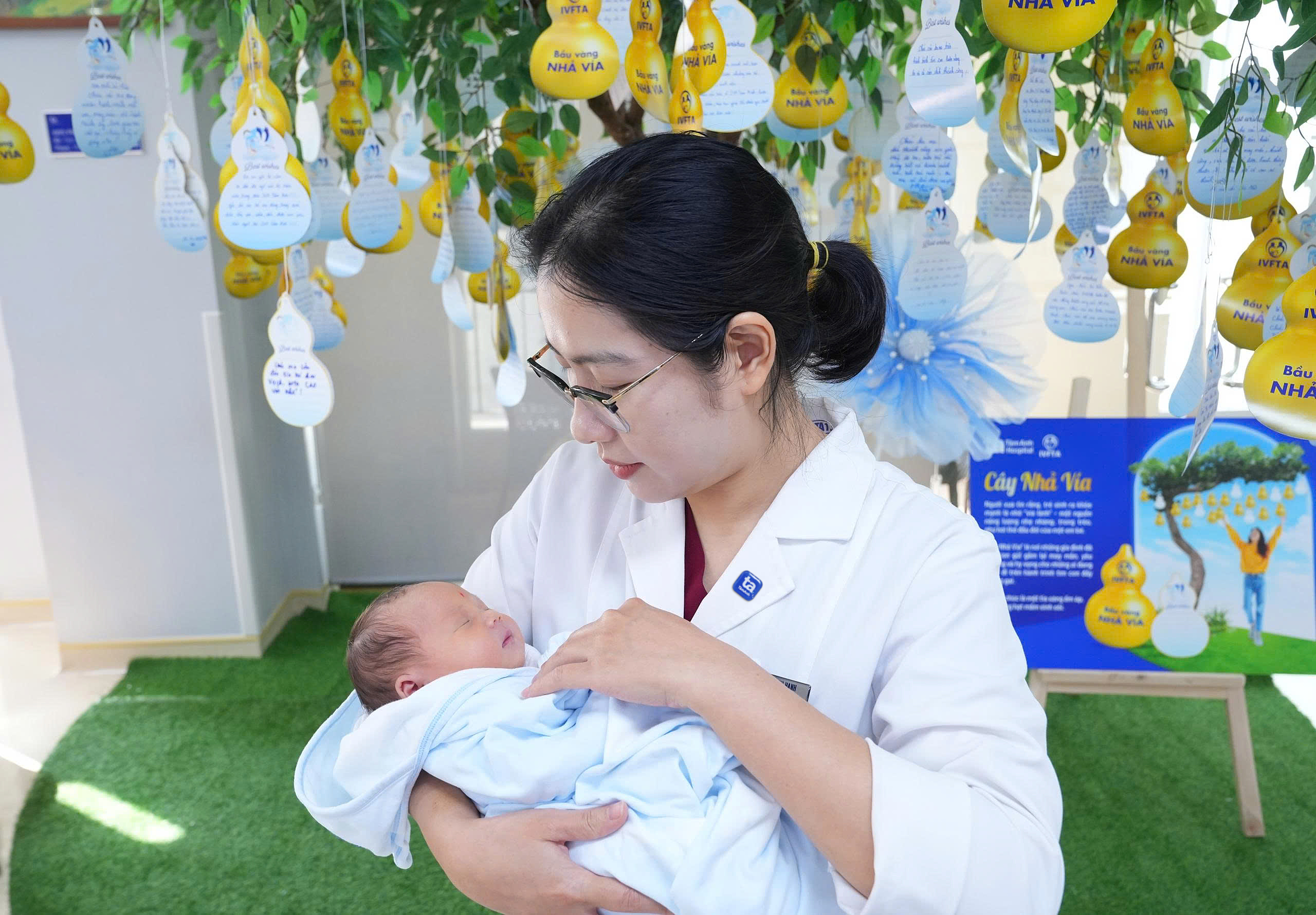"After such a long journey trying to conceive, I'm finally a mother," Hong shared while holding her baby on 5/8.
Hong and her husband had sought treatment at various clinics, exploring both Eastern and Western medicine, without success. Dr. Cao Tuan Anh, from the Center for Reproductive Support at Tam Anh General Hospital in Hanoi, diagnosed Hong with diminished ovarian reserve, with an AMH level of 0.997 ng/mL and only a few follicles visible in both ovaries during her early menstrual cycle.
A typical IVF cycle requires around 10-15 eggs. For women with diminished ovarian reserve like Hong, retrieving enough eggs in a single cycle is challenging, resulting in fewer embryos and lower success rates. Hong's age further complicated matters, as egg quality declines and the risk of egg degeneration increases with age, making egg freezing less viable.
Dr. Anh recommended embryo banking over multiple cycles to increase Hong's chances of having more embryos, improving her chances of pregnancy, and optimizing treatment effectiveness and cost. Hong underwent ovarian stimulation and egg retrieval, followed by fertilization with her husband's sperm. The embryos were cultured in a time-lapse incubator that optimized temperature, humidity, pH, light, and air concentration.
In the first two cycles, the couple obtained one day-3 embryo and two high-quality day-5 embryos, which were frozen. In the subsequent cycle, they retrieved two day-7 embryos and two day-6 embryos using in vitro maturation (IVM). However, artificial intelligence (AI) software detected abnormalities during cell division and graded the embryos as poor quality, leading to their disposal.
After thawing and transferring one of the day-5 embryos into Hong's uterus, she became pregnant, but the pregnancy was ectopic, requiring laparoscopic surgery to remove her right fallopian tube. After an 8-month recovery period, the remaining day-5 embryo was transferred, resulting in a successful pregnancy. In early July, she gave birth to a healthy baby boy weighing 3.5 kg. With one day-3 embryo still frozen, the couple plans to have another child.
 |
Doctors at Tam Anh IVF Center visit Hong and her baby before discharge. Photo: Tra My |
Doctors at Tam Anh IVF Center visit Hong and her baby before discharge. Photo: Tra My
"Diminished ovarian reserve due to aging is a common cause of difficulty conceiving naturally," explained Dr. Tuan Anh. In such cases, women may need to consider donor eggs for IVF. Embryo banking offers a viable solution for older women, those with a low egg count, or those experiencing premature ovarian insufficiency.
Embryos have a more stable cellular structure than eggs and a higher survival rate after freezing. Doctors assess embryo quality and conduct preimplantation genetic testing to select healthy embryos before transfer. Embryo banking over multiple cycles increases the likelihood of obtaining at least one high-quality embryo, thereby improving the chances of pregnancy.
In 2024, patients with low ovarian reserve accounted for approximately 65% of infertility cases treated at Tam Anh IVF Center. 70% of these women underwent egg or embryo banking over multiple cycles, achieving an average IVF success rate of 78.7%, including cases with a poor prognosis, nearly depleted ovaries, and those previously recommended for egg donation or surrogacy.
Trinh Mai
*The patient's name has been changed.
| Readers can submit questions about infertility here for doctors to answer. |












